International cooperation key to fighting the pandemic
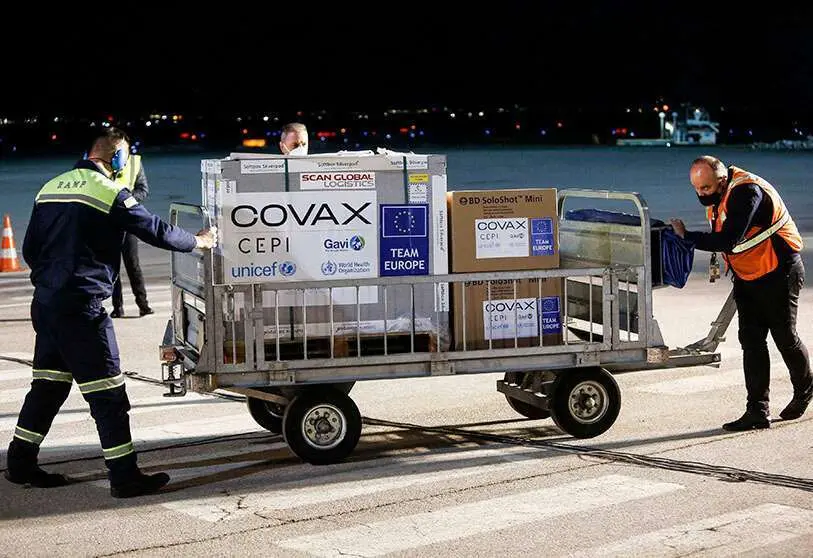
The Hope Consortium, the COVID-19 vaccine delivery collective, is holding a global pandemic immunisation summit throughout the week. Several regional leaders took part in a second meeting on Tuesday to find solutions and find points of cooperation in the fight against the virus. The global recovery, according to the conference participants, involves forming a strategic alliance between all states.
Leading figures on the international political scene took part in the panel discussions. Among them were Nachman Ash, Israel's coordinator for COVID-19, Nadhim Zahawi, the British Minister for Trade and Industry and Vaccine Deployment, and Farida Al Hosani, the spokesperson for the health sector in the United Arab Emirates. Also present were the Ministers of Health of Saudi Arabia and Nigeria, Han Hokdar and Osagie Ehanire, and African Union representative Bruce Mokaya Orina, among others.
During the opening speech, the president of the Department of Health of Abu Dhabi, Abdullah bin Mohammed al-Hamad, stressed the importance of global cooperation, as "no one can do it alone". Al-Hamad conveyed the Emirate's intention: "We want to be open to the world and we want to help the world". The X also pointed out that the virus has been a great opportunity for technological development and scientific progress: "11 months later we already had the vaccine against COVID-19".
Roberto Mardini, the director general of the International Committee of the Red Cross (ICRC), argues that The Hope Consortium's challenge for global access to the vaccine is ambitious, but that it should not forget the health systems of countries affected before COVID-19, such as Syria or Yemen. "Inequity with delivery also needs to be tackled," he added. "It is not only morally correct, it is also strategically sound.
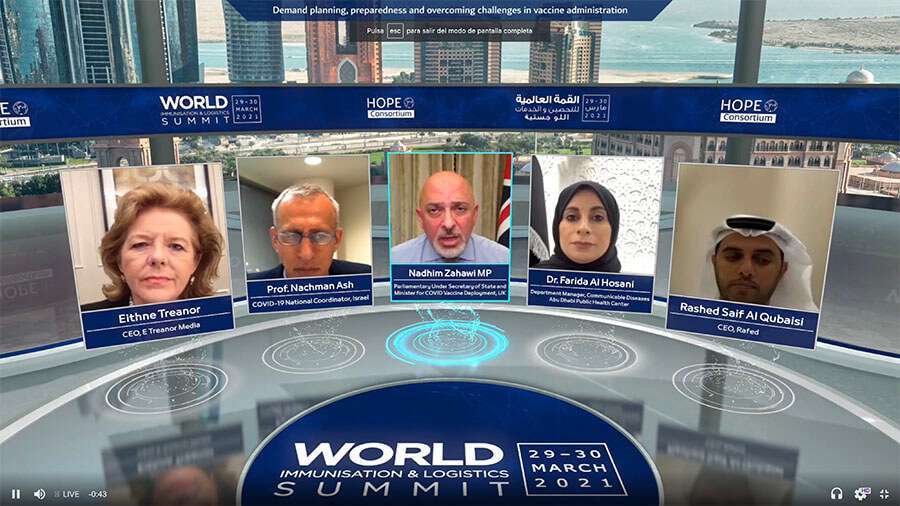
In the first panel discussion, the coordinator of Israel against COVID-19 said that "things in Israel are promising", and argued that the key to good management is strong leadership. "The best solution is to vaccinate. We have to put all our efforts into the vaccination campaign," says Nachman Ash.
The authorities have taken advantage of the facilities used for vaccination against the influenza virus, so for them it has not been a question of infrastructure, but of organisation. The press is already talking about mass immunisation in Israel, and the government is handing out 'green passes' to those vaccinated, an authorisation required for access to certain areas.
UK Minister Zahawi congratulated Ash himself on the "great work" of the Israeli authorities, adding that one of the UK's main challenges for the vaccination campaign is to facilitate access to the vaccine for the country's ethnic minorities. Zahawi himself mentioned the work in mosques, as well as the deployment of the vaccination operation in various parts of the country. Of the UK's 66.65 million people, more than 34 million have already received at least one dose.
Emirati spokesperson Farida al-Hosani said that the UAE had planned months in advance for the distribution of the vaccines, and that "public-private collaboration" has been a determining factor in the good figures for both the Emirate of Abu Dhabi and the rest of the country. The UAE has inoculated more than 8 million doses, making it the second best performer in the Middle East after Israel, and has a population of 10 million.
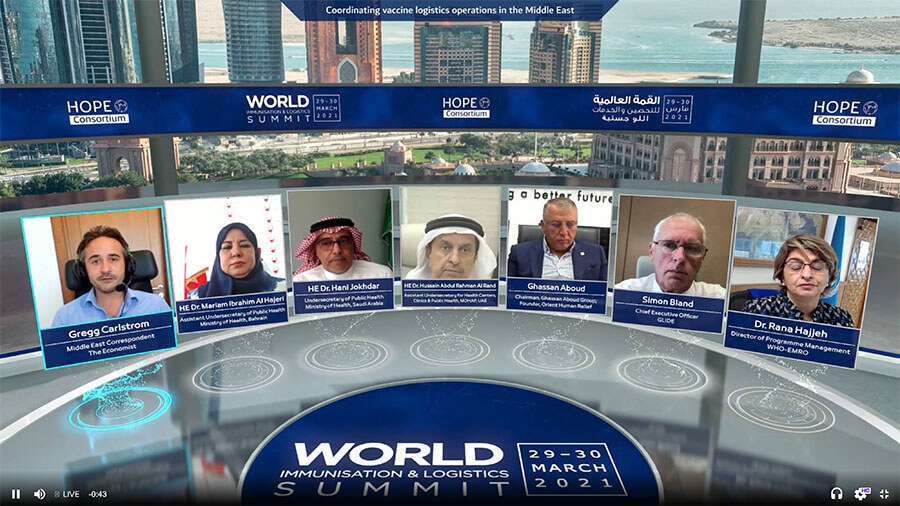
"Technology is the key," said Zahawi. Emirati spokeswoman Farida al-Hosani added that the UAE uses it to monitor daily vaccination progress and maintain direct contact with the citizen. "The data is our ally," said Zahawi, "it is used by the UK to track deliveries.
Ash said Israel uses digital information to record the number of vaccines available, the number of doses they administer and the amount of vaccine in stock. In this area, Rafed CEO Rashed Saif al-Qubasi also maintains that the use of data and statistics is crucial in coordinating with the authorities when transporting supplies.
The media form another essential pillar. On this point, too, all were in agreement. The British minister was categorical: "A policy of maximum transparency must be pursued. A major communication strategy must be put in place". Zahawi added that the UK is working with several universities around the world, including Harvard, to combat disinformation and uncover fake news. "We must not leave the field to other players," warns Israel's COVID-19 coordinator in this area.
Nachman Ash pointed out that the communication strategy also involves gaining the support of opinion leaders on social media. "Especially to raise awareness among young people," he added. Al-Hosani denounced the denialists who "sow falsehoods" in order to demobilise vaccination. The Emirati authorities, he said, send targeted messages to each segment of the population through the appropriate channels.
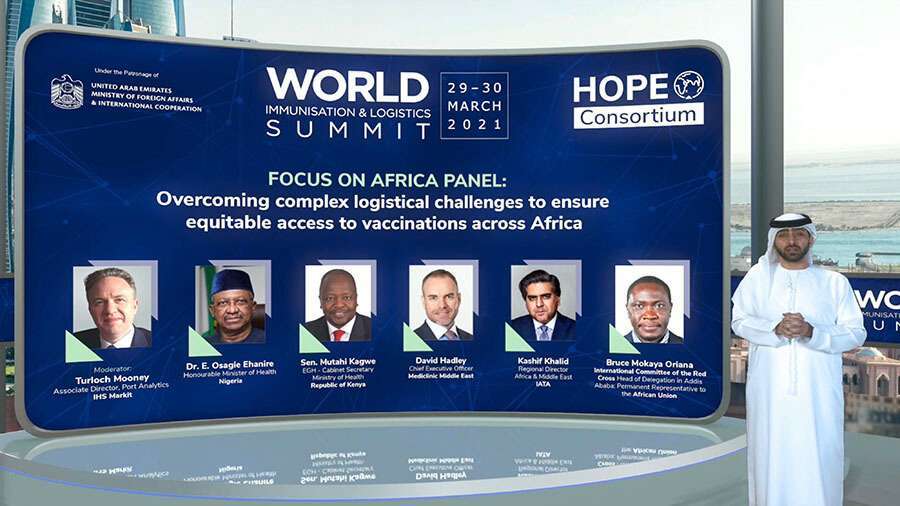
Saudi Arabian Health Minister Hani Jokhdar cited the construction of 20 mega-vaccination centres by the Saudi authorities in the second panel as an example of good management. Citizens of the Kingdom can book a time to come to the centre to receive the dose, according to Minister Jokhdar. Vaccination has been available to everyone in the Kingdom since February, but of the more than 34 million people in the Kingdom, only four million have received the vaccine.
Entrepreneur and founder of Orient Human Relief, Gasshan Aboud, has steered the debate towards access to vaccines for countries in conflict. "We need the world to understand the humanitarian difficulties," he said. The Executive Director of GLIDE (Global Institute for Disease Elimination in Abu Dhabi) added that "no one is safe until everyone is safe", and that it is necessary to invest in other states to get out of the crisis together.
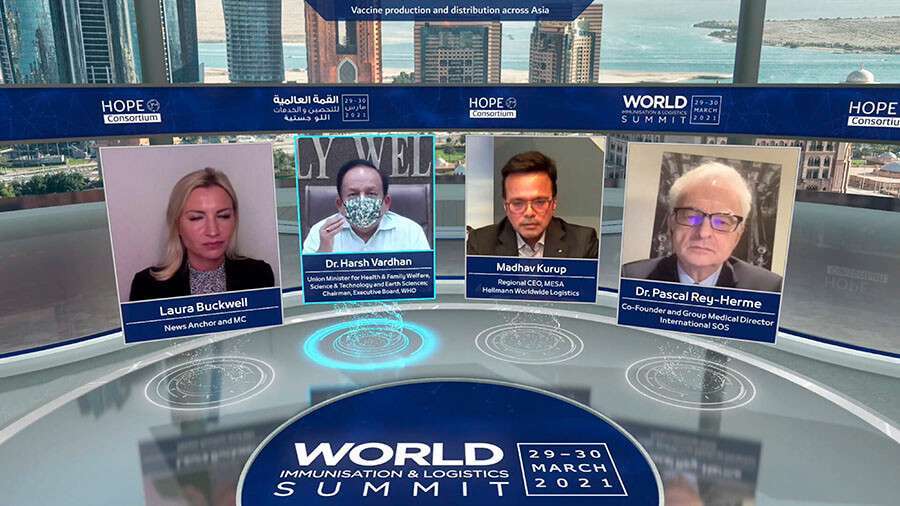
On this last point, WHO's Director of Programme Management for the Eastern Mediterranean office, Rana Hajjeh, warned of the third wave facing the region and the weak state of some countries in combating it. Particularly those that are involved in wars. Hajjeh pointed to the good work of the COVAX mechanism in the Middle East, however, she also warned of the fatigue that citizens are experiencing and that the closures "cannot last forever". Hajjeh therefore sees the need for international cooperation not only to improve health conditions, but also to revive the market.








